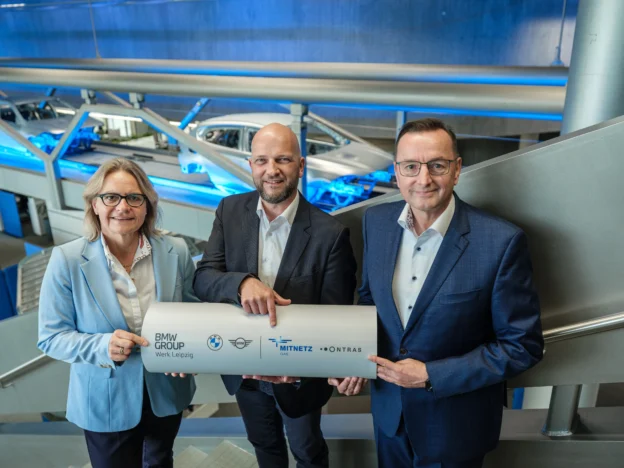BMW Group announced that its car manufacturing plant in Leipzig will be the first in the world to be directly connected to a hydrogen pipeline of approximately 2 km. This connection is intended to replace the use of tanker trucks that currently supply hydrogen in cylinders to the plant, in order to optimize the supply for energy-intensive processes such as the paint shop’s drying ovens.
Strategic alliances for a decarbonized future
To carry out the construction and integration of the pipeline, BMW signed agreements with MITNETZ GAS and ONTRAS Gastransport, who will be in charge of:
- MITNETZ GAS: The engineering and construction of the gas pipeline 2 km pipeline, as well as the metering and pressure system.
- ONTRAS Gastransport: Manages the technical connection of the plant’s pipeline to Germany’s future hydrogen backbone.
The fact that the Leipzig plant will be connected to Germany’ s future “Hydrogen Backbone Network” means that the BMW Group will have the ability to access production and storage sites throughout the country, as well as Europe’s hydrogen networks.
Practical applications for the Leipzig plant
The BMW Group’s Leipzig plant is one of the most modern automobile factories in the world, renowned for its architecture and its design to reduce the carbon footprint by using technologies such as hydrogen or electric batteries.
With the new continuous hydrogen supply planned for 2027, the plant will be able to leverage the use of bivalent burners already installed, capable of running on gas or hydrogen, especially in areas of high thermal demand. In addition, the change will impact internal logistics, which already operates more than 230 fuel cell vehicles.
The Leipzig plant is one of the most modern and sustainable plants in the BMW Group and employs around 5,300 people.
The big picture
The connection to the hydrogen pipeline is a further piece in the BMW Group’s comprehensive hydrogen strategy, which encompasses not only production, but also logistics and end products. The group has also been evaluating both fuel cells and hydrogen combustion engines in the heavy-duty trucks that arrive at the Leipzig plant.
Source and Video: BMW Group.

